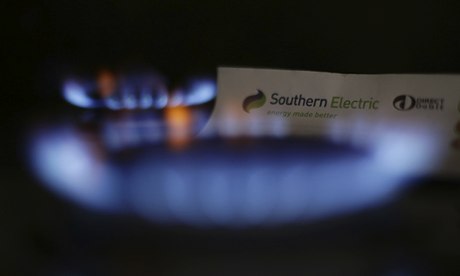
The Liberal Democrats will resist attempts to cut funding for a key energy-saving initiative blamed for pushing up bills, Ed Davey, the energy secretary, has indicated.
In an interview published on Sunday, Davey said he would be willing to see the energy companies obligation (ECO) – the most expensive of the green levies added to household bills – funded from central government rather than directly by consumers.
But he also insisted that, if a new funding mechanism is agreed, he would not sanction a cut to the £1.3bn value of the scheme. "There is no way I could support any move which undermined our effort on either energy efficiency or fuel poverty," he told the Sunday Telegraph.
The future of ECO and other green levies has been the subject of intense speculation at Westminster since David Cameron announced he wanted to roll back the charges that add an average of £112 to household fuel bills. Removing the ECO from bills would save the average householder £47, according to figures from the Department for Energy.
But ministers would then have to decide whether to fund the shortfall in full from central government – from tax rises or, more likely, from spending cuts elsewhere – or whether to cut it.
ECO funds energy-saving measures such as insulation and new boilers, mostly for poor households. Energy companies have to hit targets by March 2015, but the industry is pushing for this deadline to be extended by 18 months, which would cut the annual cost of the scheme, and some Conservatives are backing the idea.
Davey made it clear he did not think this was acceptable. "We have got to help people with their bills. If we were to pull back on our ambitions for tackling fuel poverty and energy efficiency, we would actually be hurting people," he said.
He admitted he was willing to consider funding ECO and another green levy, the warm home discount (which adds £11 to the average household bill), from central government rather than from a charge on household bills. This could allow the schemes to be funded more fairly.
But he said some green levies would remain on bills. "We are not reviewing those parts of the bills that support renewables," said Davey.
In a separate move, the energy minister Greg Barker told the Mail on Sunday he was close to a deal with energy companies on a new code of conduct to discourage them from holding on to cash from customers whose accounts are in surplus because they are using less energy than they are paying for.
Research from Which? last year found these over-payments boosted energy companies' balance sheets by £1.2bn. Under the plan, companies would reportedly take a more proactive stance to alerting customers that they are entitled to recoup their money.

